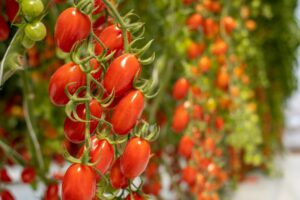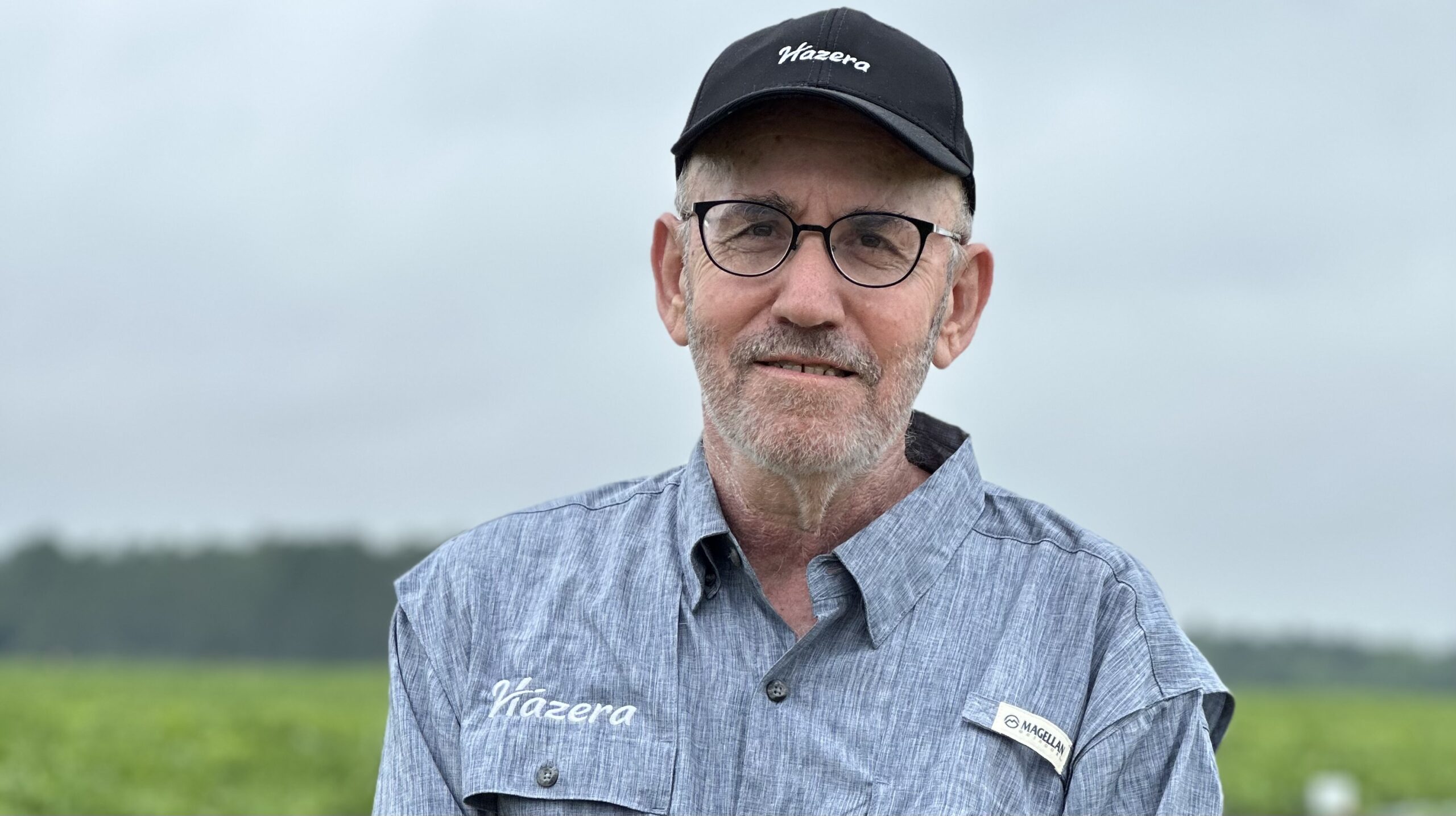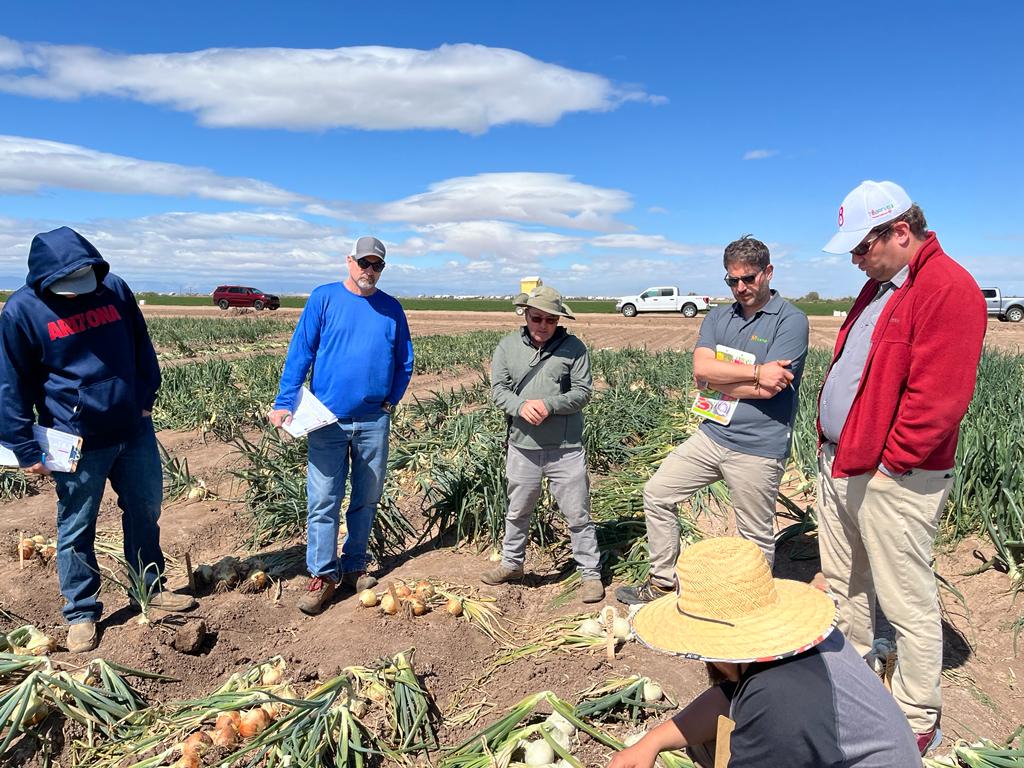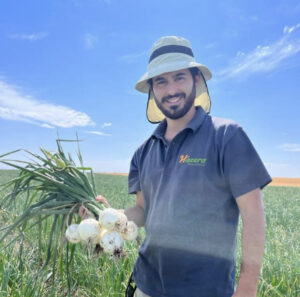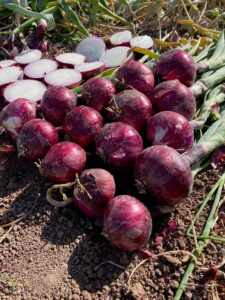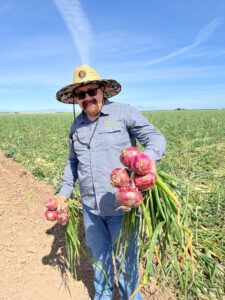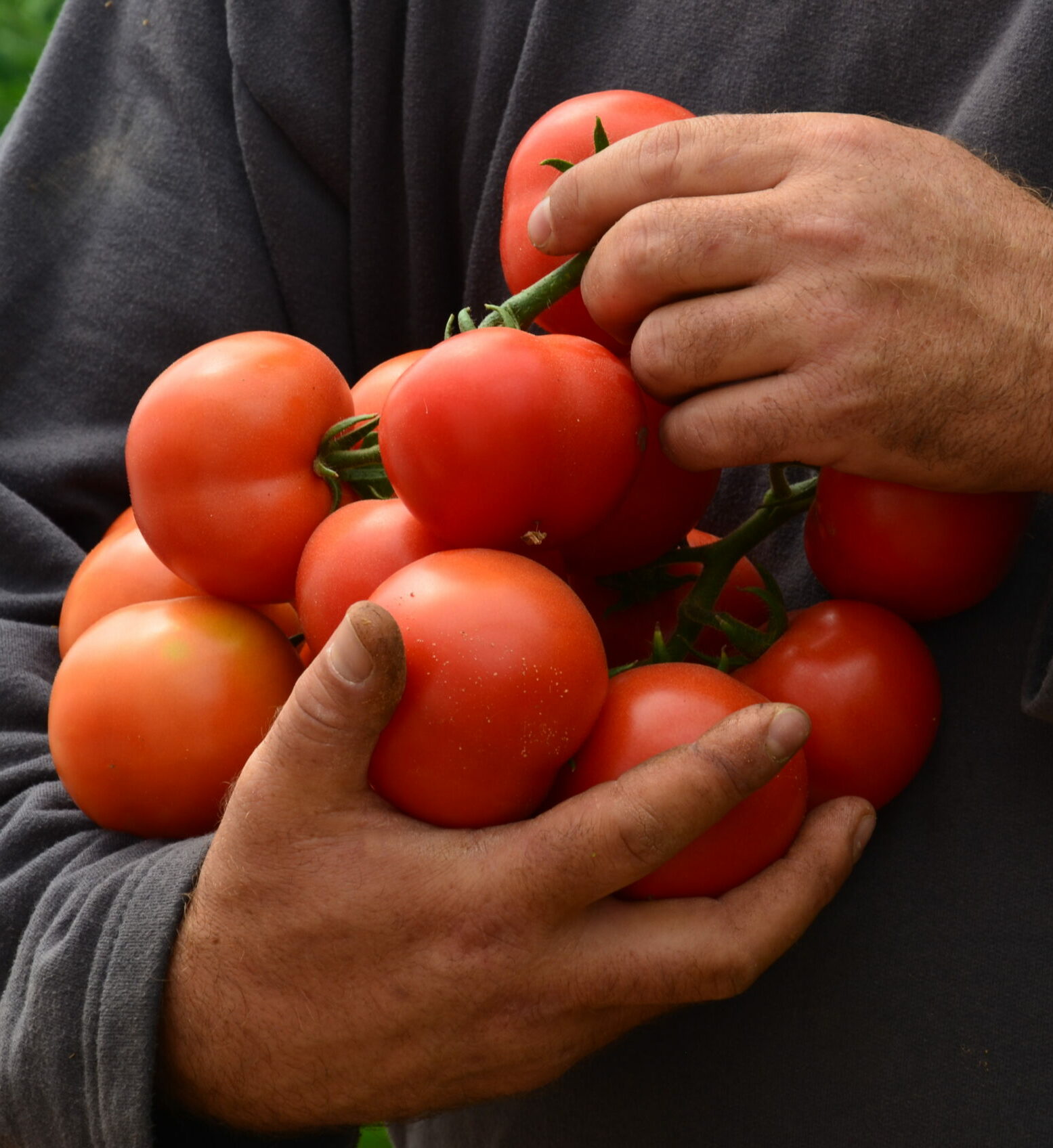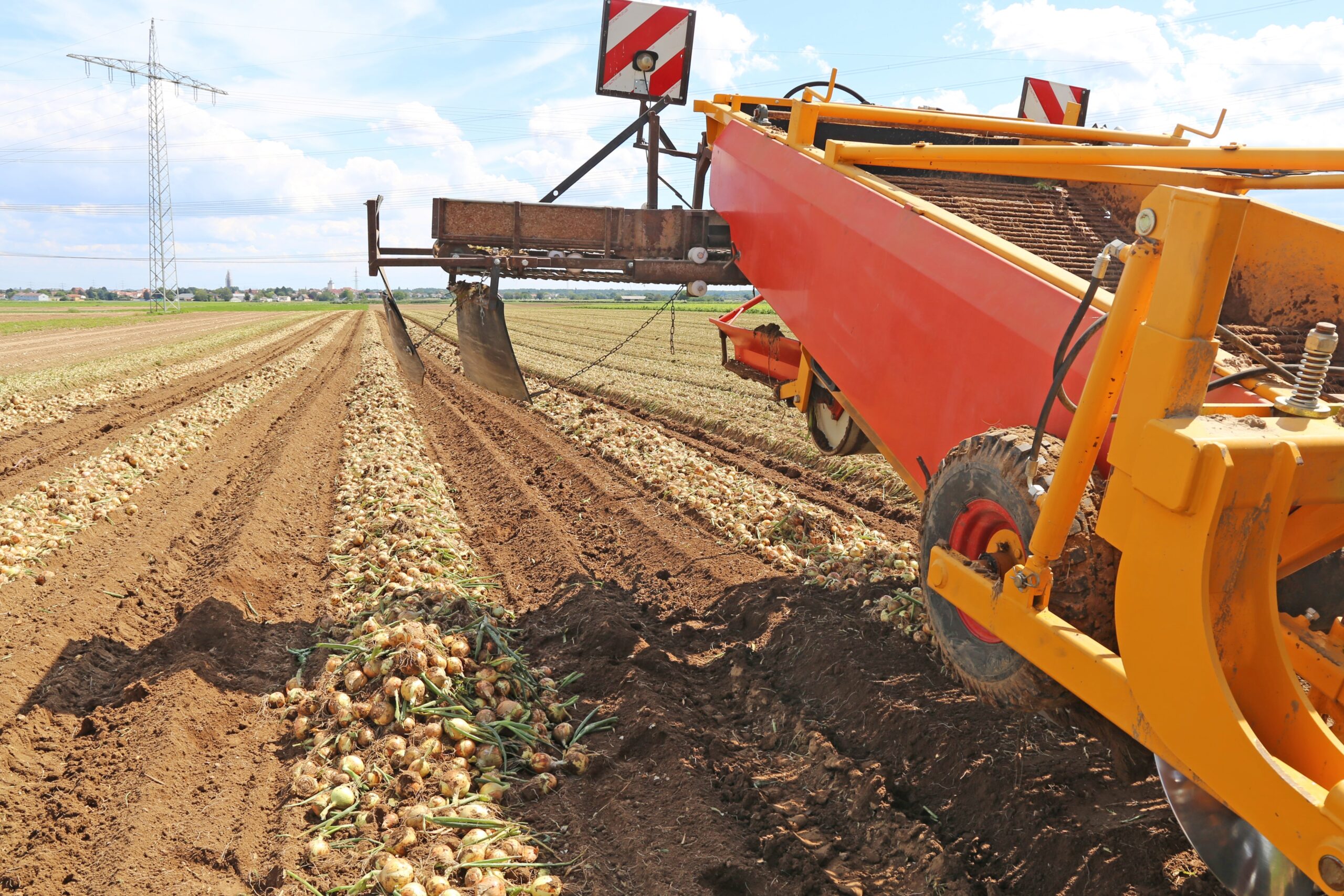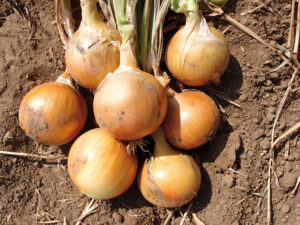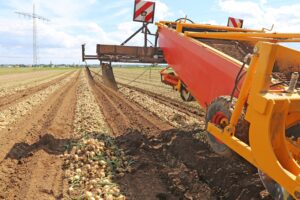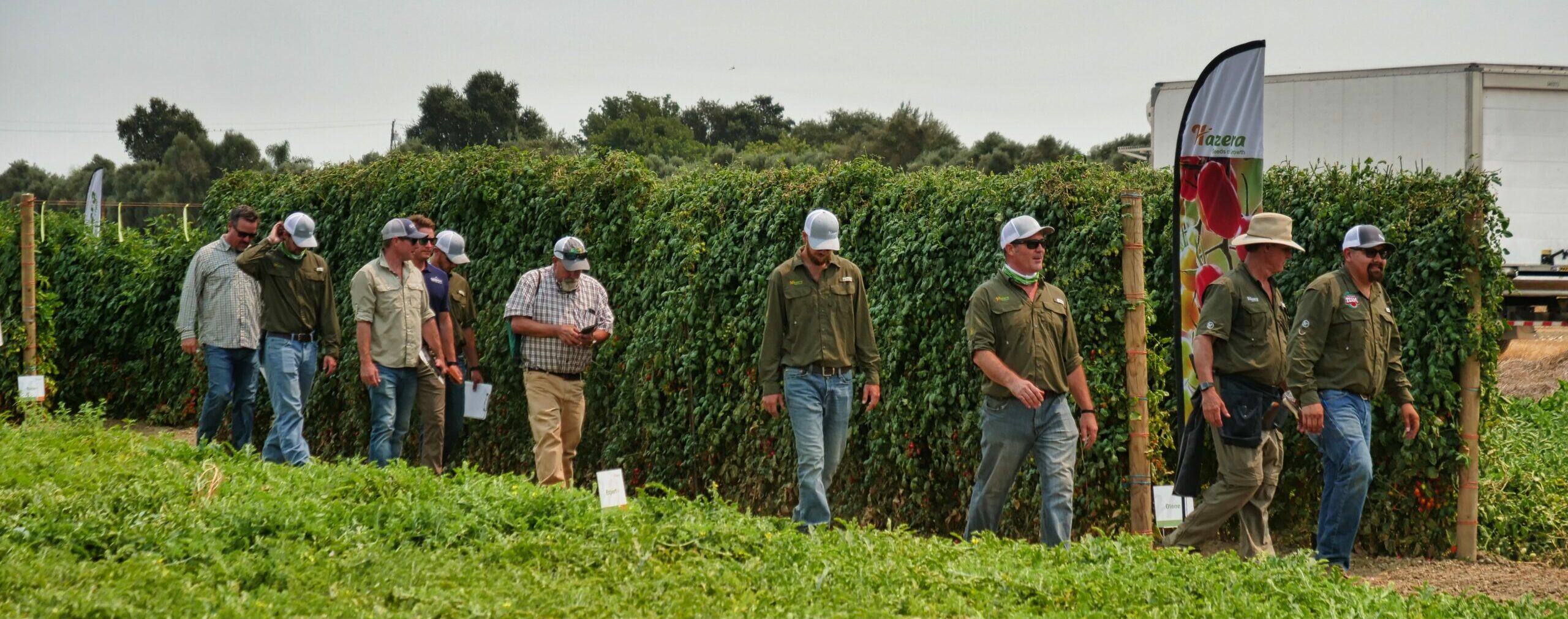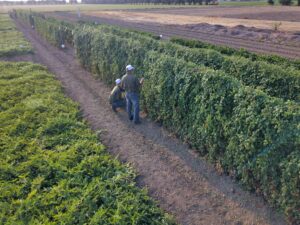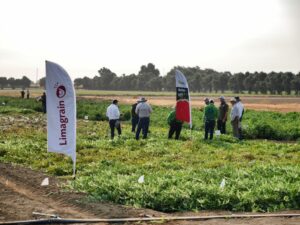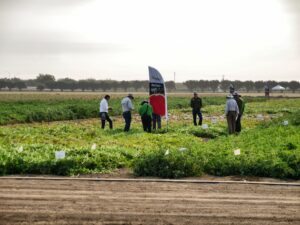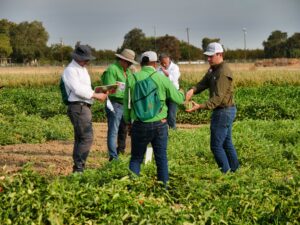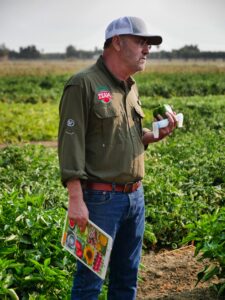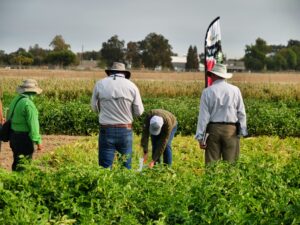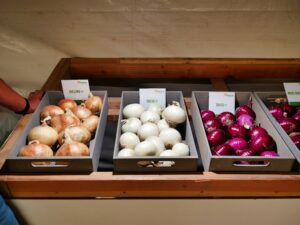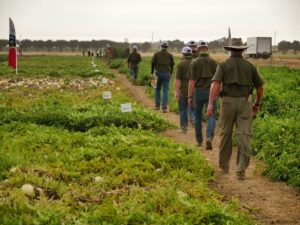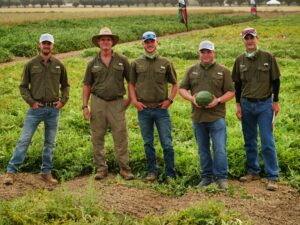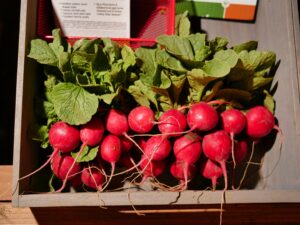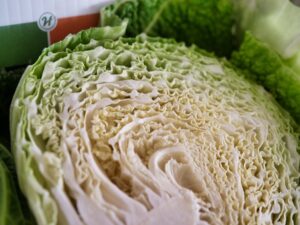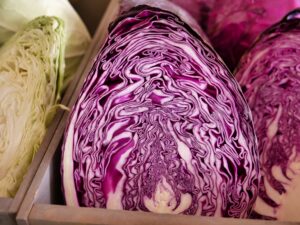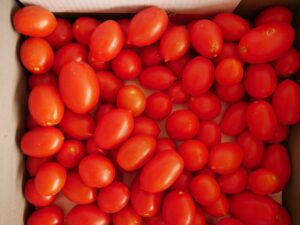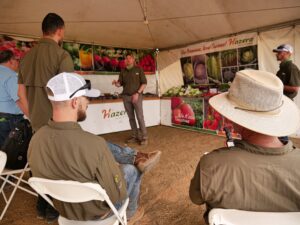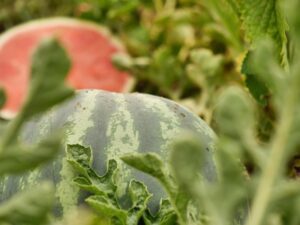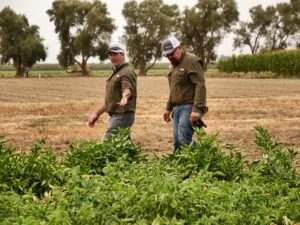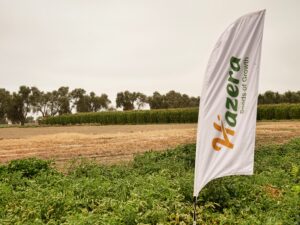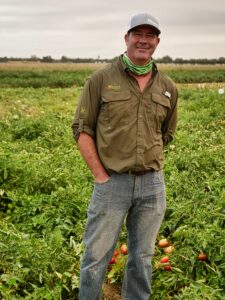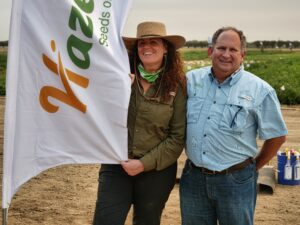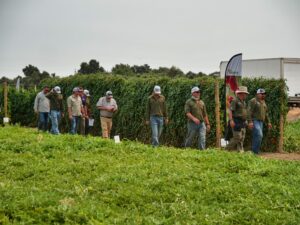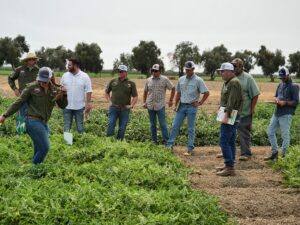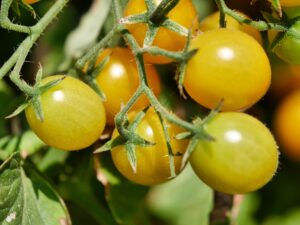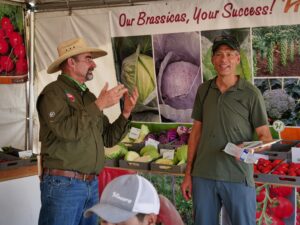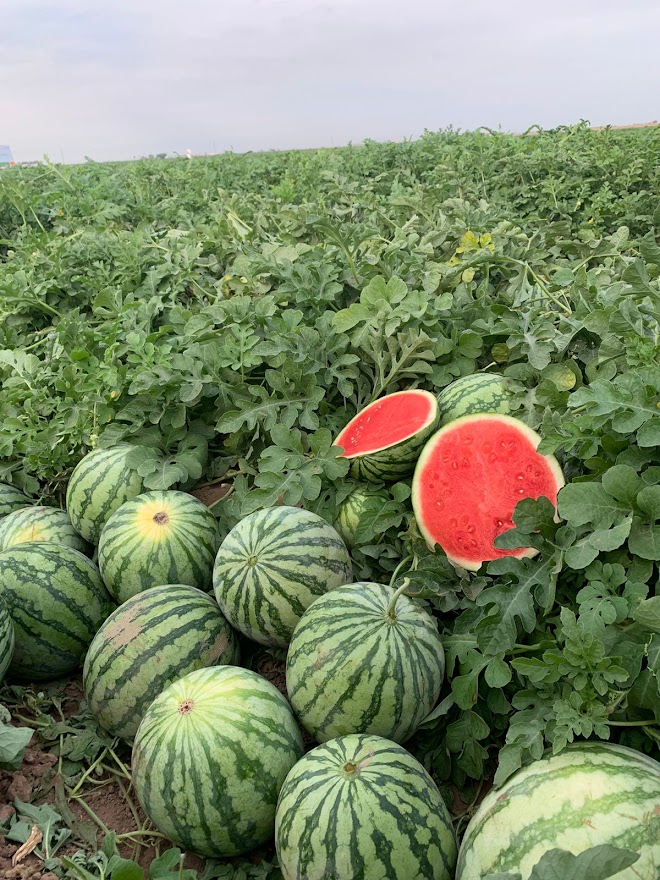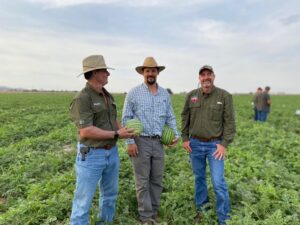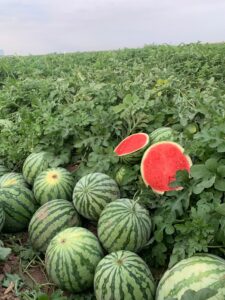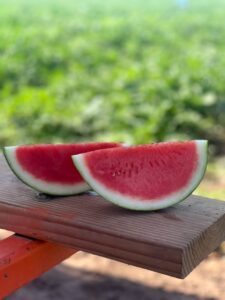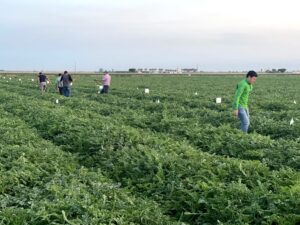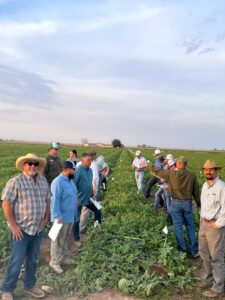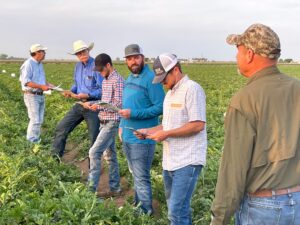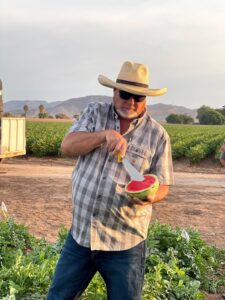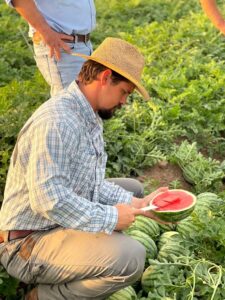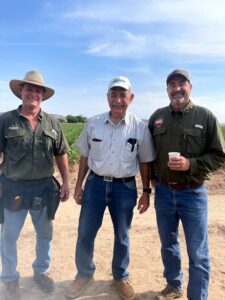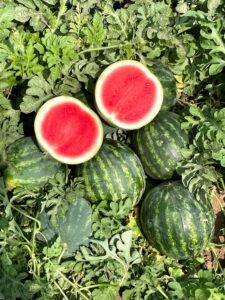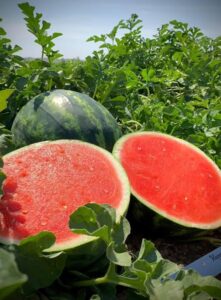Staay Food Group and Hazera Seeds present new watermelon
Exceed mini watermelon nominated for Fruit Logistica Innovation Award 2024
The Exceed mini watermelon has been nominated for the 2024 Fruit Logistica Innovation Award, marking a proud moment in the long-standing partnership between Staay Food Group and Hazera. The winner will be announced at Fruit Logistica in Berlin (7-9 February), where Staay will be present to premier the Exceed watermelon.
Mark Loojenga, Marketing Manager at Staay Food Group, and Michal Taraska, Global Value Chain Lead at Hazera, discuss the product, the partnership and what to expect at the Food Logistica.
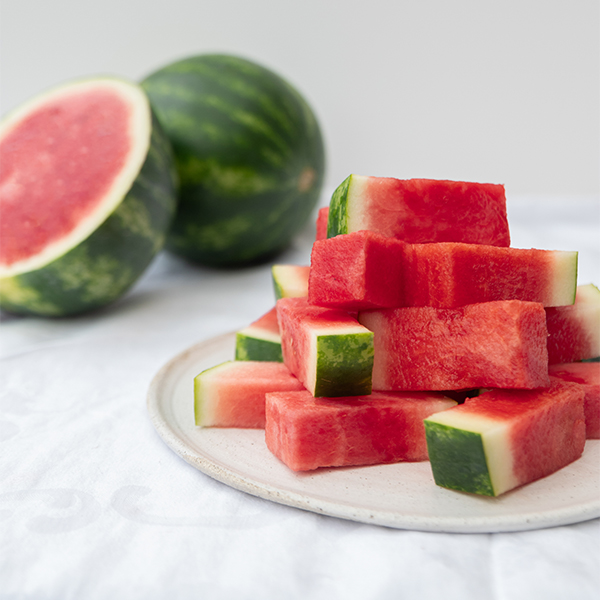
Exceeding expectations
According to Mark and Michal, the Exceed watermelon has earned its nomination through a unique combination of qualities that benefits growers, retailers and consumers. “The Exceed watermelon is a durable and eco-friendly variety, with strong resistance to diseases like powdery mildew, and has plants that provide multiple harvests. Not only does this make life easier for the grower, but it also requires less fungicides and significantly less water than the production of traditional watermelons”, Mark says. Michal adds that this also helps reduce food waste: “Exceed makes it possible to reduce losses in production and during transport.”
“And due to the variety’s extended shelf-life of over 5-10 days longer than traditional watermelons, this variety displays a long-lasting freshness in both supermarkets and consumer’s homes”, he continues. With its compact, uniform size the Exceed watermelon answers a strongly growing call in the (Northern) European and American markets for smaller watermelons. “The size is suitable for ever smaller households and easy to keep in the fridge. And they’re seedless, which is both a major convenience for consumers and a waste-saver.” Mark adds. “But it’s the taste and color they come back for.” Michal: “The Exceed mini watermelon has a really sweet and crispy taste, as is shown by its above average Brix level.”
Team effort
The Exceed mini watermelon is the latest success in a long-standing collaboration between Staay Food Group and Hazera. “Staay is a strong and dynamic partner, which is key for successfully introducing a new product to the market”, Michal says. He underlines the importance of such a partnership for Hazera. “We can provide the best Formula One car, but we still need a top-class driver to win the race. In Staay Food Group, we’ve found that driver.”
An analogy Mark wholeheartedly agrees with. “Hazera provides top-quality seeds that are perfectly suited for our fields in Costa Rica. And with this newly developed variety, we perfectly reflect the demands of the market; we’re able to grow the right products. The Exceed mini watermelon is another step in our close and fruitful cooperation.”
Premier release at Fruit Logistica Berlin
The premier release of the Exceed mini watermelon for the European market will take place at Fruit Logistica, where Staay Food Group will be present at stand B45 in hall 3.2. “Here, we will also display a selection of other products we grow and offer ourselves,” Mark elaborates. “For the first time we can show our three club varieties of colored pears together: The Red Conference, Early Desire and Dazzling Gold are all exclusively available through Staay Food Group. Secondly, we show our hydroponic lettuces, and finally our wide range of available vine tomatoes. In addition, we will bring special attention to our branch in Venlo, which focuses on the food service industry. This location provides a quite unique service for the German market, where customers can buy products per box instead of per pallet and can combine different products on one pallet. This is ideal for restaurants, who usually don’t need entire pallets of one product.”
The prize-giving ceremony for the innovation award will take place on 9 February 2024, 2.30 p.m. at the FLIA Technology special exhibition area between Halls 1.1 and 2.1. Mark and Michal agree this nomination “shows we are on the right track in our team effort to successfully align the development, cultivation, sales and marketing of excellent and innovative products.”


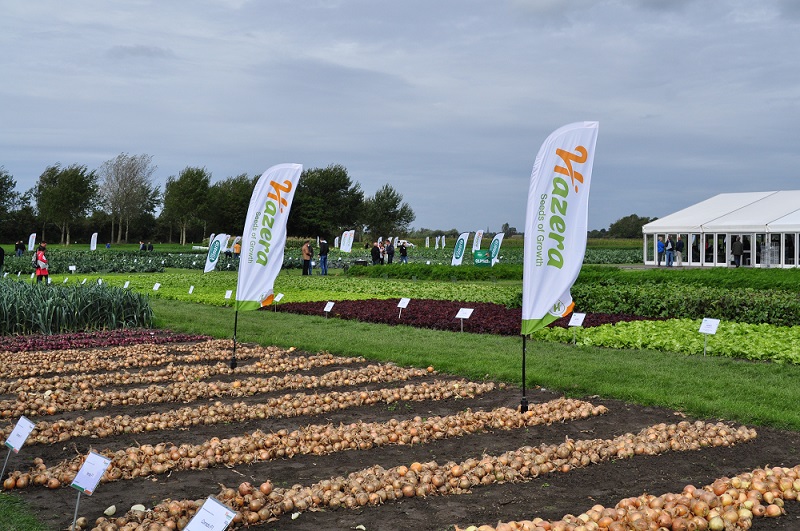



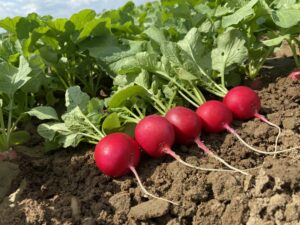
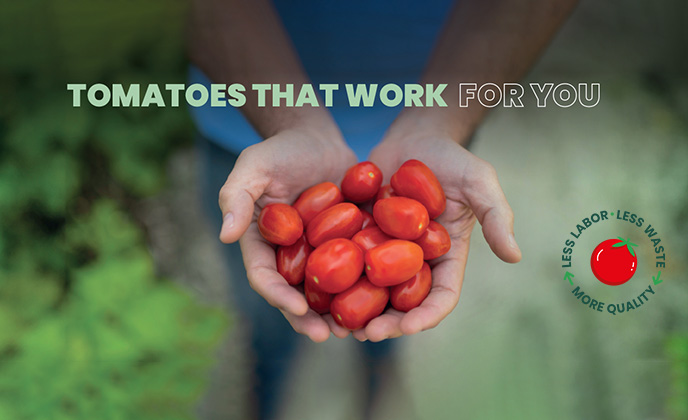
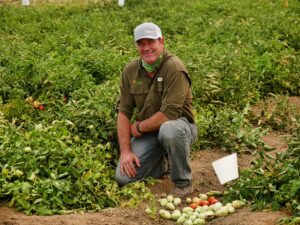 Arno Van Staden: “At Hazera, we strive to develop tomato varieties that address the challenges faced by growers, retailers, and consumers alike. With our unique advantages, we aim to provide an innovative solution that improves efficiency, reduces waste, and enhances the overall experience for everyone involved in the tomato supply chain and Camelot is exactly that variety”, says Van Staden.
Arno Van Staden: “At Hazera, we strive to develop tomato varieties that address the challenges faced by growers, retailers, and consumers alike. With our unique advantages, we aim to provide an innovative solution that improves efficiency, reduces waste, and enhances the overall experience for everyone involved in the tomato supply chain and Camelot is exactly that variety”, says Van Staden.